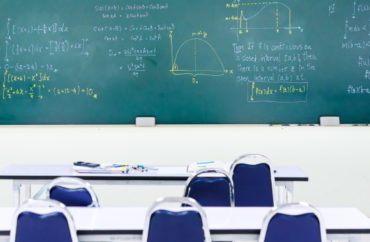
If you’re a statistician with a doctorate and want to be an assistant math professor at California State University, Stanislaus, you better be prepared to “provide specific examples of how you have or plan to address diversity in your teaching, research, and service,” because in its Department of Mathematics, a diversity statement is required for those who wish to teach.
The College Fix reached out via email to Michael Bice, chair of the mathematics department at CSU Stanislaus, asking: “How would one go about addressing diversity through a position as an assistant math professor.” There was no response.
Bice also did not reply to The Fix’s inquiry regarding whether an otherwise qualified job applicant would have a realistic chance of being hired if they did not espouse a commitment to addressing diversity.
The CSU Stanislaus’ mathematics department is not alone in presenting job applicants for faculty positions with such questions. DEI requirements have become commonplace at many academic institutions – even in STEM departments where one’s political beliefs and thoughts on social policy would seem irrelevant.
Like CSU Stanislaus, Wesleyan College in Macon, Georgia, requires aspiring math professors to provide “a statement of how [they] have supported diversity in [their] work,” informing them in bold letters: “Incomplete applications will not be considered.”
Lenoir-Rhyne University’s College of Natural Sciences and Mathematics in North Carolina requires those wishing to teach introductory chemistry courses and general chemistry labs part-time to submit a “[s]tatement of teaching philosophy which includes a discussion of how [they] incorporate DEI in [their] job and/or teaching and learning.”
As recently reported by The Fix, doctors who’d like to work as an “academic surgical oncologist/breast surgeon” at UC Davis must first describe their “[c]ontributions to diversity, equity, and inclusion” as well.
Similarly, last year when Illinois State University’s School of Biological Sciences was looking to hire an assistant professor of immunology, would-be research immunologists were informed ISU’s biology department “seek[s] candidates who use innovative molecular approaches to study any area of immunology,” but that regardless of their abilities as a researcher they were required to provide “a one-page statement describing [their] interest in or effort toward furthering diversity, equity, and inclusion.”
In an email statement to The College Fix, Svetlana Jitomirskaya, a mathematics professor at UC Berkeley, wrote, “I think it is becoming clear to more and more people nowadays that requiring diversity statements is a failed, even if originally well-intentioned, experiment, as not only does it have many markings of a political litmus test, but in practice it also encourages cynicism and even reinforces the biases.”
Moreover, those subjected to these kinds of requirements when applying for faculty positions in STEM departments – or being evaluated in their current positions – sometimes find themselves baffled with how to comply with them.
Bill Blanken, a chemistry professor at Reedley College who is part of a lawsuit against the California community college system pertaining to DEI requirements for current faculty, is quoted in a story on the Foundation for Individual Rights and Expression’s news page as saying: “‘I’m a professor of chemistry. How am I supposed to incorporate DEI into my classroom instruction?’” before adding, “What’s the ‘anti-racist’ perspective on the atomic mass of boron?”
Additionally, critics of DEI requirements in STEM, such as Dorian Abbot, a professor in the Department of the Geophysical Sciences at the University of Chicago, often contend that these kinds of requirements are “hindering our ability to produce the best science” in part by “selecting young scientists partially using criteria other than scientific merit and potential”.
Alexander Barvinok, a professor of mathematics at the University of Michigan, expressed similar concerns in a 2023 letter explaining why he was leaving the American Mathematical Society.
“With grave concern, I see the growing use of DEI statements as a required component for job applications, in particular in mathematical sciences. In my opinion, it has an enormous corrosive effect on the math community and education in this country,” he wrote.
MORE: DEI takeover of STEM hinders ability ‘to produce the best science,’ say scientists
IMAGE: Jaboo 2 Foto / Shutterstock
Like The College Fix on Facebook / Follow us on Twitter






Please join the conversation about our stories on Facebook, Twitter, Instagram, Reddit, MeWe, Rumble, Gab, Minds and Gettr.